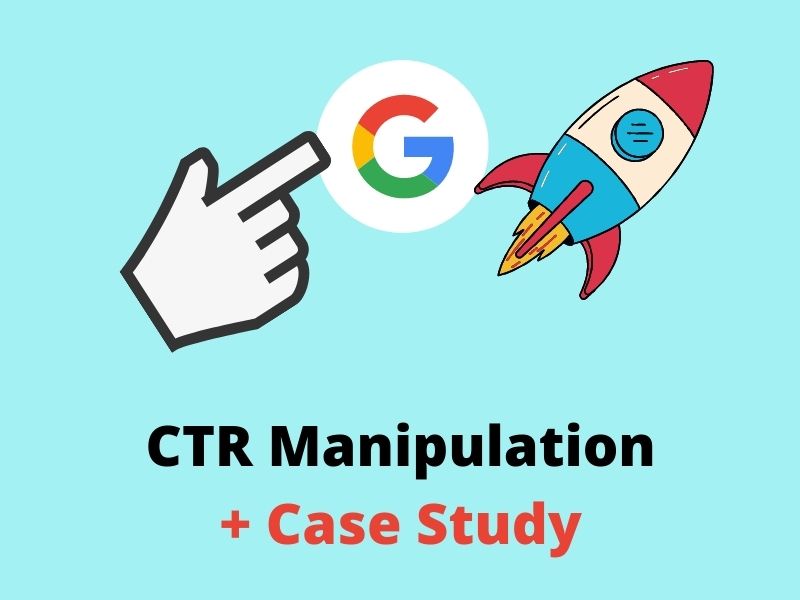Take Control of Your Click-Through Rates With CTR Adjustment
In today's affordable digital landscape, understanding click-through rates (CTR) is vital for taking full advantage of engagement and driving conversions. Efficient CTR adjustment requires more than just imagination; it includes a methodical strategy to testing and analysis.

Comprehending Click-Through Fees
Click-through rates (CTR) act as a critical statistics in electronic advertising, aiding businesses determine the efficiency of their online campaigns. CTR is determined by splitting the variety of clicks an ad or link gets by the variety of times it is shown, shared as a percentage. If an ad is revealed 100 times and receives 5 clicks, the CTR would certainly be 5%.
A high CTR shows that the material reverberates well with the target audience, driving engagement and passion. Conversely, a reduced CTR might indicate that the messaging, visuals, or targeting criteria need optimization. Services make use of CTR as an essential performance indication (KPI) to examine the success of their techniques, educating decisions on advertisement placements, audience targeting, and innovative elements.
Recognizing the factors that affect CTR is essential for optimizing on the internet marketing initiatives. Hence, a comprehensive understanding of CTR is crucial for any kind of organization aiming to thrive in the competitive digital landscape.
Importance of CTR Manipulation
The control of click-through prices (CTR) is a strategic focus for digital marketers aiming to improve project efficiency and accomplish specific service purposes. In an increasingly competitive digital landscape, a greater CTR represents not just higher target market interaction yet likewise the effectiveness of advertising strategies. By optimizing CTR, businesses can guarantee that their web content gets to the desired audience, causing improved conversion rates and total return on financial investment (ROI)
Additionally, a strong CTR can boost brand name visibility and reliability. As internet search engine and social networks systems often prioritize web content with higher involvement prices, manipulating CTR can assist improve natural reach and bring in more possible customers. CTR Manipulation Service. In addition, by analyzing CTR metrics, marketing professionals can gain important understandings into target market habits and preferences, enabling them to make data-driven decisions that fine-tune targeting and messaging.
Ultimately, the importance of CTR control exists in its capability to drive purposeful interactions that line up with company objectives. This not only fosters more powerful customer relationships yet also positions brand names for long-term success in the digital industry. Highlighting CTR as a key efficiency indication enables marketing professionals to stay dexterous and responsive to market fads, making sure sustained relevance and competition.
Methods for Enhancing CTR
Enhancing click-through prices (CTR) requires a multifaceted technique that includes various methods customized to target market preferences and behavior. Firstly, crafting engaging headlines is necessary. Headings should be clear, concise, and evoke curiosity, prompting users to click to learn more. Incorporating numbers or questions can also increase interaction.
Additionally, optimizing meta summaries plays an important duty. A well-written meta description need to sum up the material succinctly while including appropriate search phrases that straighten with user searches. This can draw in organic clicks from search engine results.
Using premium visuals is one more effective method. Images and video clips can catch focus better than message alone, making it essential to consist of engaging multimedia web content that complements the message.
In addition, A/B testing various components, such browse around these guys as call-to-action buttons and formats, enables marketers to recognize what resonates best with their audience. Customizing material to particular demographics go and leveraging social proof, such as testimonials and testimonials, can even more enhance reputation and motivate clicks.
Assessing Your CTR Performance
Among one of the most essential facets of digital advertising is understanding how well your material executes in terms of involvement (CTR Manipulation Service). Analyzing your Click-Through Price (CTR) efficiency provides useful insights right into customer interaction with your digital properties. By assessing CTR, you can determine which items of web content resonate with your audience and which fall short to capture their attention
To start, segment your analysis by different variables such as project kind, target market demographics, and traffic resources. This allows for a detailed understanding of which components add to greater or reduced CTRs. Use analytics tools to track these metrics in time, allowing you to observe fads and patterns that notify your advertising and marketing strategies.
Additionally, take into consideration the contextual elements bordering your her comment is here content, including headlines, call-to-action (CTA) placements, and aesthetic components. A/B screening different variants can generate understandings into what especially drives involvement. Contrasting your CTR against sector standards will certainly assist determine your efficiency family member to rivals.
Best Practices for Ongoing Renovation
Continuous renovation of your CTR calls for a diverse method that includes regular analysis, testing, and adaptation. To achieve this, start by regularly monitoring your efficiency metrics. Make use of analytics tools to track CTR fads gradually, determining patterns and abnormalities that may inform your strategies.
Next, conduct A/B screening on different components of your campaigns, such as headlines, phones call to activity, and aesthetic elements. This experimentation permits you to determine which variants reverberate most with your audience, resulting in more reliable material (CTR Manipulation Service). Make certain to carry out modifications based on data-driven understandings as opposed to assumptions

Final Thought
